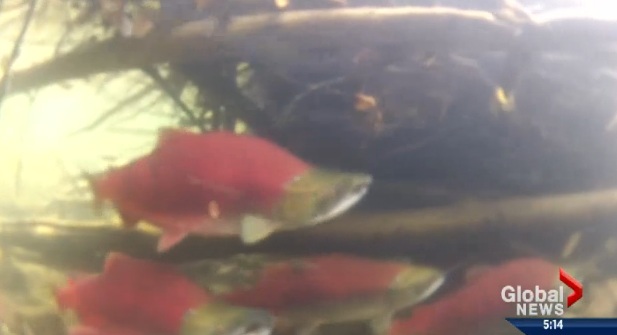Protesters who have been occupying a fish farm near Port McNeill for more than two months say they’ve been handed an eviction notice ahead of injunction hearings scheduled for this week.

Carla Voyageur’s daughter is one of three people who have been at the Midsummer Island fish farm since early September.
Voyageur says the occupiers argue the Atlantic salmon farms in the area were built against the wishes of local First Nations, and are seriously harming local fish stocks.
B.C.’s fish farming industry has been adamant that its farms are run safely, and pose no risk to the ecosystem.

Get daily National news
Marine Harvest, which runs the facility, is due in the Supreme Court of British Columbia on Tuesday to argue for an injunction to force the protesters out.
READ MORE: Dead humpback whale found at empty fish farm near central B.C. coast
But Marine Harvest says the occupation is unsafe for both demonstrators and staff.
Spokesperson Ian Roberts agrees Indigenous rights and title are at the centre of the dispute, but says occupation isn’t the way to address them.
“There are a few First Nations activists that seem to want to bypass the process of consultation. That process is there for them to voice their concerns and they’ve gone straight to activism. And we prefer that the crown work with First Nations to discuss their issues as part of the process that’s afforded to them.”
Roberts says his company is more than willing to sit down with First Nations face to face to discuss the future of the industry.
“We’ve been asking for 10 to 20 years now for First Nations in the area to sit with us and discuss our business. These conversations are between governments, First Nations governments, province, and the feds. But if we’re invited to that table, we would love to have the opportunity to sit at that table.”
Roberts says B.C. fish farms have spent decades improving their environmental footprint — and can safely coexist with wild salmon stocks.






Comments